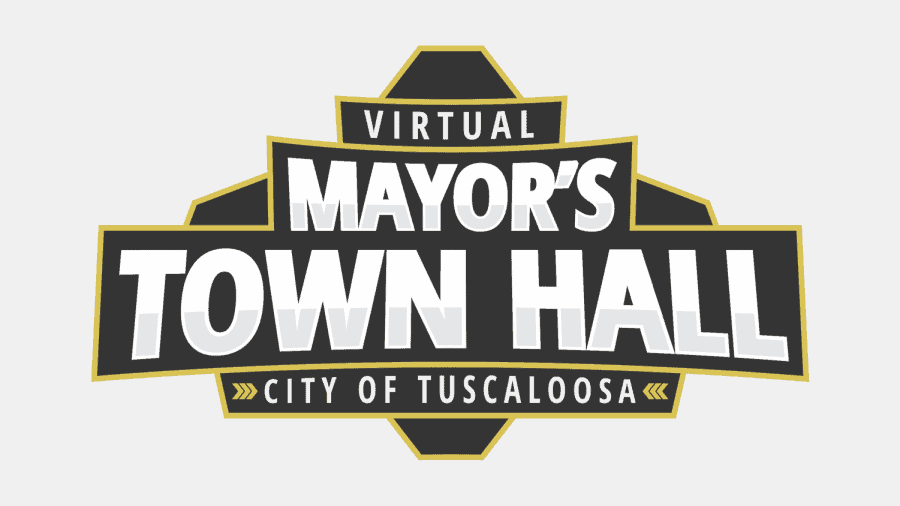City will vote to determine reopening of Tuscaloosa on May 12
April 17, 2020
In this afternoon’s virtual town hall, Tuscaloosa Mayor Walt Maddox announced the timeline for Tuscaloosa’s reopening in the coming weeks.
On April 28, Maddox will present a plan to the City Council and begin discussing how Tuscaloosa can safely transfer back into operation, both economically and socially. The details of this plan have yet to be announced, but a vote is scheduled for May 12.
“This is an economic crisis like we’ve never faced in the history of this city,” Maddox said. “Not only have we had thousands of businesses that have been impacted by COVID-19, we have lost 20,000 people out of our city. Those two things have created a deadly combination for businesses, especially small businesses in our community. We are going to have to think differently. We’re going to have to work within the laws of Alabama in doing so. There’s no perfect science to this, and certainly we’re going to continue to learn as we move forward, but I’m excited about what we will present to the city council.”
As far as restaurants go, Maddox, along with Tuscaloosa Associate City Attorney Scott Holmes discussed the gradual and careful returns that they may start to make.
“In restaurants, probably even more so than your real retail stores, you know they have to restock the kitchen,” Holmes said. “And, if we do this too soon and they open back up for two weeks, restock their kitchen with perishables, and then we end up having to pull back, they suffer.”
As far as other businesses, their transitions could be a little smoother.
“What we’re going to be doing next week is thinking of creative ways to work those businesses to implement responsible measures,” said Brendan Moore, Tuscaloosa’s Executive Director of Urban Development. “That can be ideas such as taking appointments for small boutique shops, encouraging customers or employees to wear masks, just simple steps that can help reduce the spread, while also allowing engagement of commerce for various businesses.”
While this is a sign of hope to both business owners and patrons, Maddox ensures that his team is still operating with extreme caution as they fear the trigger of a second wave of the coronavirus if protective measures are lifted prematurely. Maddox is working closely with medical professionals who have the authority to stop any city-led plans.
“This has got to be healthcare centric,” Maddox said. “We’ve had a medical director on staff at the city well before COVID-19. We’ve also been working with DCH, the University and UAB. Dr. Robin Wilson, who is the chief medical officer at DCH, works with our Incident Command team. Our medical advisors will have veto power on any recommendation that we make.”
New positive cases, testing ability, hospital bed capacity and available supply of PPE are all metrics that are being considered in the plan to reopen.
“Once we do open things up, people are still going to get the coronavirus, and possibly even at higher rates than right now,” Maddox said.
Holmes cautioned against a quick re-entry.
“Normally you talk about work from doctors and nurses and first responders, but this has been work from every citizen of our city,” Holmes said. “Even if it’s having to close down your business, if it’s just having to stay home, this is something the entire community has worked at, and we’re seeing great progress. But we cannot allow opening things back up a couple weeks earlier to undo that work and potentially make it worse.”
Maddox also reminded citizens of another way they can do their part to ensure that the city’s data is up to date: take the census.
“It takes less than 10 minutes,” Maddox said. “In 2010, less than 65% of our people in Tuscaloosa, not university students just the people who live outside the university, completed it. You filling out that census is going to be paramount in Tuscaloosa’s recovery. When one person fails to fill out the census, this community loses $2,000.”
“But let me boil it down even better. When you talk about SBA loans for our struggling businesses in this community, those SBA loans and many others are determined by a formula that’s related to the census. When you don’t fill out the census, you’re hurting a neighborhood business. You’re hurting a neighborhood social circle or hurting a social service agency. You’re potentially even maybe raising taxes because we will lose federal funding that will still be needed in our community.”
“Filling out the census is the best way to ensure that this community recovers from the COVID-19 crisis. So Tuscaloosa, please take 5 to 10 minutes. Let’s step up to the plate. Let’s fill out that census form, and let’s ensure that we recover from COVID-19.”








